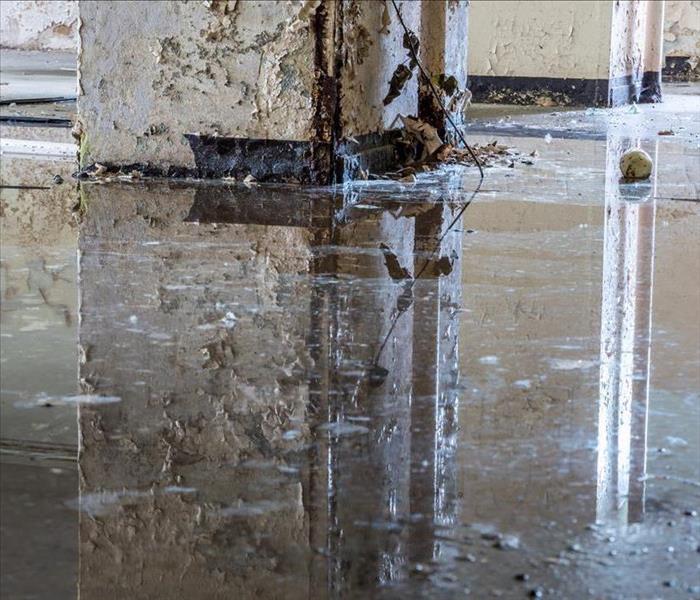How To Prevent a Flooded Basement
9/23/2021 (Permalink)
Depending on the area of the country your Washington, NC, home is in, it may be more or less prone to a basement flood or excess moisture. The majority of basements will naturally be more humid than the rest of the house because of their location in the ground. Your homeowners insurance coverage probably covers some flood situations, but not all. There are steps you can take to ensure as much as possible that your basement won't endure flood or any other type of water damage.
How Can I Keep My Basement from Flooding?
1. Maintain Gutters and Downspouts
Regularly inspect and maintain your roof's gutters and downspouts. Make sure they're clear of leaves and other debris. The water should drain at least six feet, ideally 12 feet, from the house and downhill and away from the house. Purchase metal add-on extensions; they're higher quality than plastic and are less likely to leak. You can also install underground PVC pipes to drain water and direct it to another yard area. These pipes are a good option if you don't have enough room for downspout extensions.
2. Install and Maintain a Sump Pump
Having a sump pump can save your potentially flooded basement from a lot of water damage. It should have a 120 volt UPS backup power supply. These UPS power supplies will continue running during a power failure. It should also be equipped with a check valve to drain outside but won't be able to flow back in.
3. Inspect the Drywall
Drywall works like a sponge in a basement flood, wicking moisture from the floor into the walls. Since concrete slabs are prone to seeping water, the drywall should be installed at least 1 inch above the floor to avoid contact with water. You can also get fiberglass-faced drywall that won't wick moisture and isn't mold-friendly.
4. Check for Wall Cracks
Inspect your basement's foundation walls for small, vertical cracks. All houses settle, which causes small cracks. A professional foundation contractor can repair them.
5. Install a Dehumidifier
Install a dehumidifier to eliminate excess moisture that is almost sure to build in your basement. Water damage restoration professionals will advise you to get a dehumidifier with an optional drain hose. This hose will drain the water automatically instead of you having to remember to empty the water receptacle. It's humid much of the year in many areas, especially in basements, so it's best to keep the dehumidifier running 24/7. Having drier air will also keep your air conditioning bill down.
6. Protect Your Flooring
If you have flooring in your partially finished or full basement, it must have a 10 mil plastic vapor barrier between the padding and concrete slab. The padding will soak up any seeping water from the concrete slab, then soak into your carpet or wooden flooring without this barrier. If your basement is carpeted, make sure it's made of synthetic materials. These materials dry quicker and are less prone to mold than other types of carpet.
A basement flood is one thing homeowners hope never to have to encounter. Follow these tips for keeping your basement comfortable and dry.






 24/7 Emergency Service
24/7 Emergency Service
